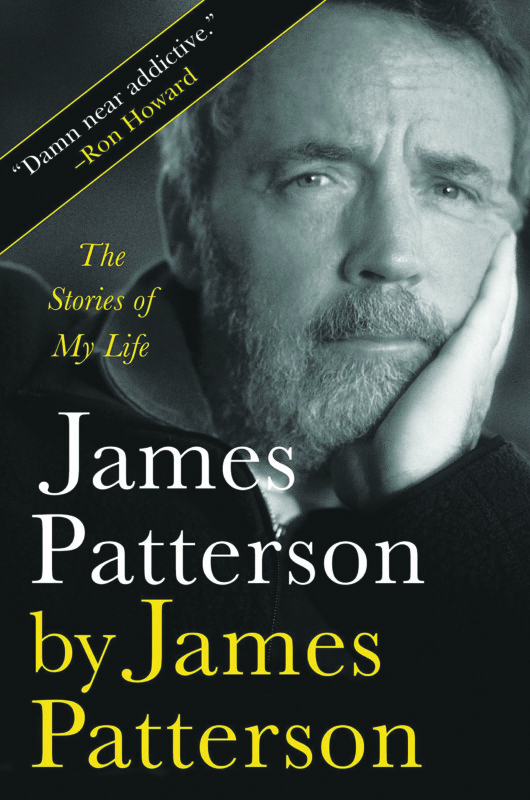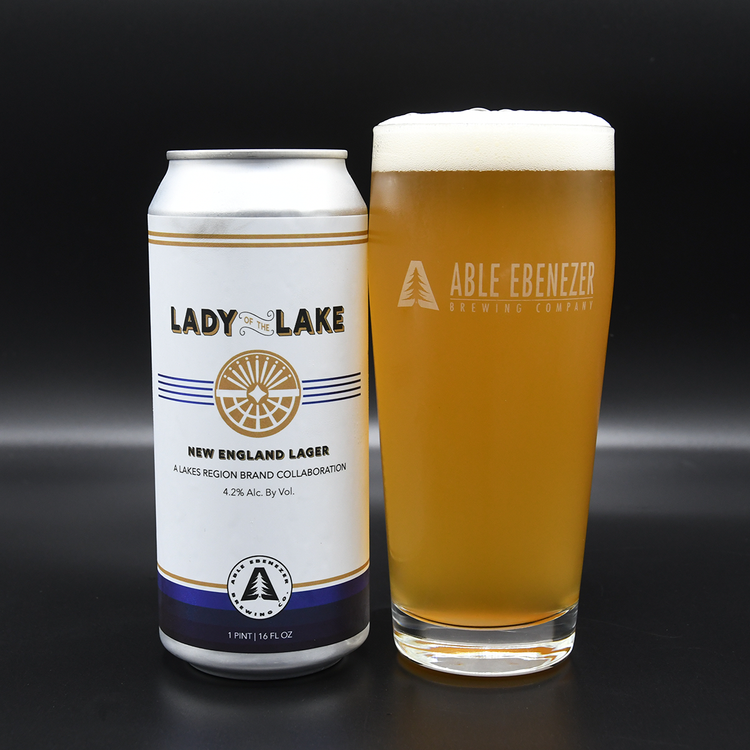James Patterson, The Stories of My Life, by James Patterson (Little, Brown and Co., 360 pages)
There’s a rumor out there that James Patterson doesn’t write all his books, not just the novels he co-authors with people like Bill Clinton and Dolly Parton, but also the ones that only bear his name. “Conceived, outlined, co-written and curated” is how The Washington Post described his work in 2016, likening Patterson to a factory of words.
When the author got in trouble recently for telling a journalist that white men can’t get a break these days, this was one of the insults hurled at him on Twitter by fellow writers like Roxane Gay, who wrote, “James Patterson, of all people. First, write your own books, pal.”
Patterson’s new memoir, which he dubs an “ego-biography,” is a seemingly preordained response to that slight. There’s no question he wrote this book, that the anecdotes sprang fully formed from his forehead. It’s three-quarters ego, one-quarter heart, strictly adhering to the formula that makes Patterson’s novels the most read in the world: short chapters — some only a single page — delivered in a folksy, conversational style. Example:
I’ve been poor and middle class, then poor and middle class again, and now I’m pretty well-to-do. Okay, I’m kind of rich.
On balance, I prefer rich.
But I don’t think I would be the person I am, or the writer, if I hadn’t experienced the whole spectrum — all the ups and downs and sideways.
The downs, if we’re being honest, are scarce.
In short vignettes, Patterson describes growing up as the only son of four children in a working-class Catholic family. They lived in modest neighborhoods but books were always strewn around. He was an altar boy and took piano lessons from a nun and had parents who demanded their boy make all A’s. (One of the chapters is named “You’re Slipping, James.” Clearly there’s some parental animosity he hasn’t yet fully worked out.) Strangely his father saw nothing wrong with regularly taking his young son to a pub on the weekend and giving him a half mug of beer. Then again, this was in the 1950s, so maybe not quite so scandalous as it seems now.
We learn about Patterson’s first kiss, his first job at a psychiatric institution in the suburbs of Boston, his matriculation at Manhattan College and then at Vanderbilt and the New York City advertising job that in retrospect seems the perfect training for James Patterson Inc.
Because he was a natural-born writer, writing with the ease in which others talked, he was promoted early and often and within a few years was handling big-name accounts, for a while flying between New York and Chicago, where he was put up in a suite with a view of Lake Michigan. At one point his salary tripled. According to Patterson, he wrote the advertising slogans “Picture a brand new world” for Kodak and “I’m a Toys R Us Kid” for Toys R Us. He also writes that he renamed what was then known as Allegheny Airlines to U.S. Air.
The disclaimer “according to Patterson” is often necessary when describing these stories because some are so incredible as to be unbelievable. They sound like something a world-famous novelist might have made up. Take Patterson’s first kiss, which is the subject of an early vignette and occurred when he was in the sixth grade. The girl was named Veronica Tabasco. In a later chapter, he writes of visiting his grandfather’s grave when he was in his 30s, turning to leave and noticing that Veronica Tabasco — the Veronica Tabasco — was buried right next to his grandfather.
“According to the stone tablet, Veronica had died in her mid-twenties. I’d had no idea until that moment. It kind of broke my heart,” he wrote.
Unusual things like that happen to Patterson all the time (according to Patterson). While his success as a novelist has made him friends with a wide range of famous people (“Damn near addictive” is the Ron Howard blurb on the cover), he’s been hobnobbing with the soon-to-be rich and famous since he was broke and unknown. For example, at the Belmont, Massachusetts, psychiatric hospital where he worked during the summer, James Taylor was a patient for a while and would sing in the hospital coffee shop. The late poet Robert Lowell was there for a while, too, and would do poetry readings in his room.
Much later in life, when Patterson was collaborating with Bill Clinton on a novel, he ran afoul of the Secret Service because someone else named James Patterson had been telling the hotel where he was staying that he was the famous author. He carries Tom Cruise’s personal number in his wallet. And he once got kicked out of the offices of the dating service called It’s Just Lunch.
These are the sorts of stories that your grandfather would tell while you’re out fishing together, if you fished with your grandfather and he was drinking and conditioned to tell stories about his past in increments of two to three pages. They are fanciful to the extreme, making it clear that the rich-to-be are different from you and me, right from the start. Then again, Patterson writes at the start of the book, “I want to tell you some stories … the way I remember them, anyway,” giving him plausible deniability. Who knows for sure if the first girl Patterson kissed is really buried next to his grandfather? Whether it’s true or not, it’s a great story, as most of the stories in this rambling, stone-skipping book of memories are.
The constant throughout Patterson’s life is books. Even while he was working seven days a week in advertising, he was working on novels early in the mornings and late at night. That is what he was most driven to do, even though a college professor had told him, “You write well enough. But stay away from fiction.”
By his mid-30s, he’d published four bestsellers featuring the detective Alex Cross (whom he’d originally written as a woman). He was also now CEO of the advertising company although he’d generally hated the work all along. (He frequently refers to it as advertising hell.) Then he had an epiphany sitting in traffic on the New Jersey Turnpike. He soon left the company to write full-time.
It’s hard to begrudge Patterson his success, however, as this memoir makes clear that he put in the work, even if he was a naturally talented writer. “Every night after work, I’d come home in a daze of jingle lyrics and cutesy catchphrases, sit in my kitchen, stare around at the tiny antiseptic space, then start writing again. He wrote his first drafts then — and still does now — with a No. 2 pencil. He still writes, he says, 350 to 360 days a year.
In this memoir, James Patterson may have finally written a book for people who don’t like James Patterson books. Stephen King may be among them. King, according to Patterson, once said that he was a terrible writer, even though he contributed a blurb for the book. It’s a highly entertaining read, but just remember that it’s the truth as Patterson remembers it. B
Book Notes
It’s hard to remember that there once was a time when the cable network AMC stood for American Movie Classics. Now it’s associated with edgy hit shows like Better Call Saul and The Walking Dead. But everything transforms, even actors to authors. Saul’s Bob Odenkirk came out with a memoir a few months ago (Comedy Comedy Comedy Drama, Random House, 304 pages), and now Walking Dead megastar Norman Reedus is hawking a novel.
The Ravaged (Blackstone Publishing, 294 pages) has a co-author, Frank Bill, so it’s unclear how much Reedus (the Dead’s Daryl Dixon) actually wrote. He told People magazine that the book started as a pandemic project and while not autobiographical it weaves in some stories of his past. It’s about three people “either running from something or running to something, and they’re finding a sense of family along the way,” he says.
Speaking of AMC, the network will launch a new series this fall based on the ever popular Interview with the Vampire by the late Anne Rice, who died last year from complications of a stroke. The book, published in 1976, has already been made into a movie, but clearly AMC thinks there’s more money to be made here. Interview (Knopf, 352 pages) was the first of 13 in a series. Producer Mark Johnson has said he’s hoping “those viewers who have never read an Anne Rice novel will go running to the bookstore eager to understand what all the fuss is about.”
Rice’s last book, co-authored with her son Christopher Rice, is Ramses the Damned, The Reign of Osiris (Anchor, 368 pages) and came out in February. It’s the third in the fantasy series that puts the historical Ramses the Great in a cursed state of immortality. Not unlike a vampire, you might note.
For something a bit less fantastical and more in keeping with the upcoming holiday, check out Mark Clague’s O Say Can You Hear? A Cultural Biography of the Star-Spangled Banner (W.W. Norton, 352 pages).
A musicology professor at the University of Michigan, Clague examines how the song took off after Frances Scott Key composed “Defence of Fort McHenry” and became both a beloved war anthem and a landmine in the culture war. A fun fact from the book: Clague considers the best popular rendition of the song to be Whitney Houston’s performance at the 1991 Super Bowl. (Available on YouTube for your holiday viewing.)
Book Events
Author events
• PAUL BROGAN presents A Sprinkling of Stardust Over the Outhouse at Gibson’s Bookstore (45 S. Main St., Concord, 224-0562, gibsonsbookstore.com) on Thursday, June 30, at 6:30 p.m. See the June 23 issue of the Hippo on page 10 for a discussion with the author. Hippopress.com; find e-editions near the bottom of the home page.
• SARAH MCCRAW CROW presents The Wrong Kind of Woman at Gibson’s Bookstore (45 S. Main St., Concord, 224-0562, gibsonsbookstore.com) on Tuesday, July 19, at 6:30 p.m.
• CASEY SHERMAN presents Helltown at the Bookery (844 Elm St., Manchester, bookerymht.com, 836-6600) on Sunday, Aug. 14, at 1:30 p.m.
Poetry
• DOWN CELLAR POETRY SALON Poetry event series presented by the Poetry Society of New Hampshire. Monthly. First Sunday. Visit poetrysocietynh.wordpress.com.
Writers groups
• MERRIMACK VALLEY WRITERS’ GROUP All published and unpublished local writers who are interested in sharing their work with other writers and giving and receiving constructive feedback are invited to join. The group meets regularly Email pembrokenhtownlibrary@gmail.com.
Book Clubs
• BOOKERY Monthly. Third Thursday, 6 p.m. 844 Elm St., Manchester. Visit bookerymht.com/online-book-club or call 836-6600.
• GIBSON’S BOOKSTORE Online, via Zoom. Monthly. First Monday, 5:30 p.m. Bookstore based in Concord. Visit gibsonsbookstore.com/gibsons-book-club-2020-2021 or call 224-0562.
• TO SHARE BREWING CO. 720 Union St., Manchester. Monthly. Second Thursday, 6 p.m. RSVP required. Visit tosharebrewing.com or call 836-6947.
• GOFFSTOWN PUBLIC LIBRARY 2 High St., Goffstown. Monthly. Third Wednesday, 1:30 p.m. Call 497-2102, email elizabethw@goffstownlibrary.com or visit goffstownlibrary.com
• BELKNAP MILL Online. Monthly. Last Wednesday, 6 p.m. Based in Laconia. Email bookclub@belknapmill.org.
• NASHUA PUBLIC LIBRARY Online. Monthly. Second Friday, 3 p.m. Call 589-4611, email information@nashualibrary.org or visit nashualibrary.org.
Language
• FRENCH LANGUAGE AND LITERATURE CLASSES
Offered remotely by the Franco-American Centre. Six-week session with classes held Thursdays from 6:30 to 8:30 p.m. $225. Visit facnh.com/education or call 623-1093.






